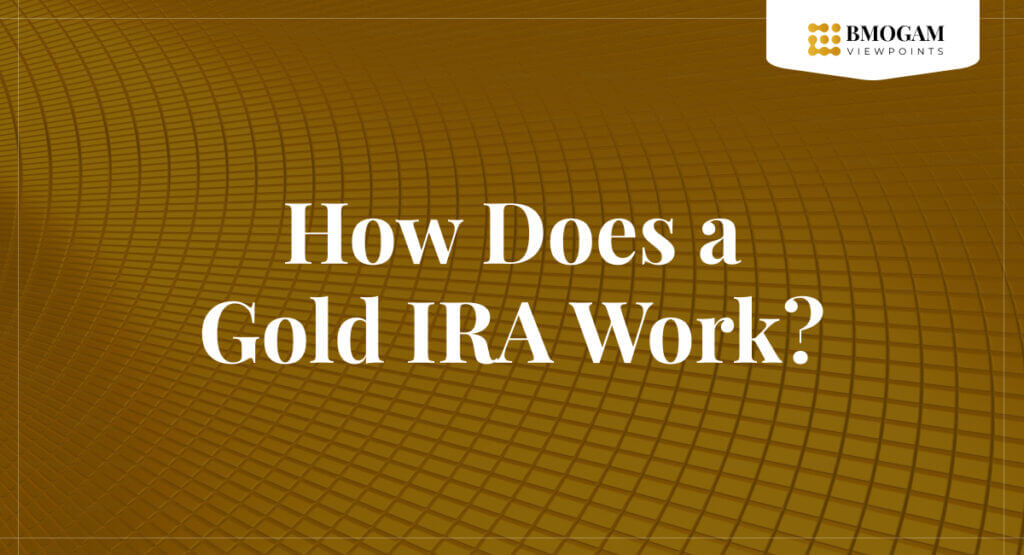Disclaimer: We are reader supported. We may be compensated from the links in this post, if you use products or services based on our expert recommendations. Please read our Advertising Disclosure.
When it comes to retirement and investing, you have many options.
Investing in precious metals, like gold, is an excellent way to invest your money: Doing so can diversify your portfolio and provide an excellent hedge against inflation.
There are many types of investment vehicles. Two such examples are gold IRAs and gold ETFs.
Here's a look at what they are, what their limitations are, and how you can determine which of these is the best option.
Before we get started:
We understand how difficult it is to pick a company that you can trust with your hard earned savings. That's why we create informative and useful information to give you as much knowledge as possible to make the right decision.

We created a list of our highest recommended investment companies, to make comparing and choosing the company best suited to your needs as easy as possible.
Or...
Get a FREE Gold Investing Packet from our #1 recommendation, by clicking the button below:
Protect Your Savings - Secure Your Financial Future Today!
What is a Gold IRA?

An IRA stands for Individual Retirement Account. There are multiple types of IRAs, many o which can be run as an individual. While the specifics of each type of IRA vary, the general gist is the same: An IRA is a tax-advantaged retirement account.
You are incentivized by specific provisions of the state and federal tax code to place money for your retirement down the line.
That money is either deposited or withdrawn tax-free, with certain limitations applying to the number of contributions that you can make. The growth of the funds is tax-free as well.
IRAs are usually managed by a financial professional and contain an assortment of stocks, bonds, mutual funds, or other financial instruments. However, there are some exceptions. One such example is a gold IRA.
A gold IRA is a self-directed IRA, meaning that you can hold physical precious metals like gold, silver, platinum, and palladium.
A SDIRA also allows you to decide where you keep it, and how much you buy - as long as you are complying with all relevant IRS laws.
Gold IRAs enable you to purchase gold and keep the money in a tax-advantaged account. Unlike traditional IRAs, you buy physical items - in this case, gold.
You can buy any gold from any approved vendor, provided that the gold is kept in the appropriate and approved storage unit. This means that you can buy coins, bars, stackers, and more.
When the time comes to sell the gold, you can withdraw the money, subject to the usual IRA regulations.
Benefits & Disadvantages of a Gold IRA
A gold IRA has many advantages over a traditional IRA, including:
However, it is not wise to think that these IRAs are risk-free. Like every investment, they come with many disadvantages, including:
Most gold investors do not buy gold as a get rich quick investment. Most gold investors buy gold as a way to preserve the savings they have built up over many years.
Physical gold is more like a form of savings.
ETF's on the other hand, are great for trading because they are just digits on a screen that come go easily.
What is a Gold ETF?

An ETF stands for Exchange Traded Fund. ETFs are very similar to mutual funds: They are stocks that have been aggregated together into one fund. When you buy a stock in an ETF, you are buying a series of stocks at a fractional rate.
ETFs are professionally created and managed, meaning that experienced experts are the ones who decide what stocks are in an ETF. ETFs can be arranged around a series of financial sectors or types.
They are very similar to mutual funds but tend to come with lower costs and higher flexibility. ETFs are arranged around any sort of commonality, including sector or region.
As such, a gold ETF is exactly what it sounds like: An Exchanged Traded Fund that is oriented around gold or gold companies. When you buy a gold ETF, you don't own gold. Instead, you will likely own a fractional share of a gold-related company.
This can include companies who engage in mining, buying & selling, or gold storage. As such, a gold ETF is a great way to get involved in the gold industry without actually buying gold itself.
There are many gold ETFs on the market, and all provide certain specific advantages and disadvantages. They also likely have different managers, expense ratios, and performance histories.
Benefits & Disadvantages of a Gold ETF
Just like gold IRAs, gold ETFs come with many advantages, including:
If your gold ET offers dividends, you stand to benefit from this financial bonus.
ETFs tend to perform well in the market, and ETFs can allow you to reap gains that come from gold.
Want to buy a gold mining ETF? How about an ETF that purchases stock in storage companies or one that concentrates on domestic or foreign gold prices? A Gold ETF can allow you that option.
Unlike actually buying gold or an IRA, a gold ETF comes with flexibility & liquidity. You can buy and sell stock in your ETF at any time, then get the money as soon as your stock broker can transfer that money to your bank account.
There are never penalties for buying or selling your ETF, and you can do so at any time.
At the same time, you have to be aware of the disadvantages that come with gold ETFs:
A gold ETF usually invests in companies related to gold, like mining or storage. It doesn't invest in the metal. There are plenty of ways to invest in gold itself, but a gold ETF just invests in ancillary companies related to the metal.
When you buy gold as a physical metal, you can easily determine the price and fees. There's no research required except for trying to keep your fees as low as possible, and even that is avoiding relatively minor costs.
There are dozens of gold ETFs available, however, and each has different component stocks, performance histories, and expense ratios.
As such, you have to do extensive research to make sure that the ETF you are buying meets your investment goals and is likely to increase over time.
Unlike IRAs, any gains that come from dividends or changes in the value of an ETF must be paid immediately. As such, you'll lose a portion of any growth as a direct result of taxes.
The taxation of ETFs - either in terms of dividends or gains in the total value of the investment - means that you lose a portion of your money to taxes.
As a result, it makes more sense to invest in retirement within an IRA, which allows for certain tax advantages that make this a much smarter option.
All ETFs are professionally managed by investors who will track the performance of the ETF and adjust its component stocks from time to time. As such, you will lose a small portion of your investment to these expenses.
These are usually not high losses, but any loss means lowered gains in your total profits.
Which is Better for Investors?
Here's the truth: It's tough to say, as the answer will vary based on your situation.
Are you looking to save for retirement?
Then there is no question: A gold IRA is more appropriate. By investing a portion of your retirement savings in precious metals, you can achieve many critical funding goals, including:
However, you can't lose sight of the fact that gold IRAs will limit or ability to move money, withdraw for non-retirement reasons, or choose your investments.
The restrictions and regulations on gold IRAs often make it a highly inflexible investment and thus make it inappropriate for investing that isn't specifically geared around your retirement.
Basically, if you need your savings next week or next month, a gold IRA is probably not for you.
But if you think of physical precious metals like buying a great piece of real estate that you will hold on to for several years, a gold IRA makes a lot of sense.
In these instances, a gold ETF may be more appropriate. Investing in a gold ETF allows you to reap the benefits of companies that are related to the gold industry but maintain the financial flexibility that allows you to easily and conveniently buy and sell these properties.
The greatest challenge is that you will have to do extensive research to find the right funds.
Furthermore, buying these funds may not protect you from a tax perspective, so you will have to consult with a CPA to make sure you are doing what you need to manage your overall tax burden.
Conclusion
Like everything else in the financial world, finding the right investment is a matter of doing your homework and aligning your investments with your objectives.
By doing so, you can ensure that you manage your portfolio correctly.
You can get a Free Gold Investors Guide from our top gold and precious metals company recommendation by clicking the link above or you can read our article of the top companies we reviewed this year:
>> CLICK HERE to read our list of the Top Gold IRA Companies. <<

I started BMOGAM Viewpoints as a way to compile all my views on investing in one place. I own my home, have some real estate, and own a few stocks like most people, but what really drives my interest in investing is I have a strong love of precious metals, especially gold.



